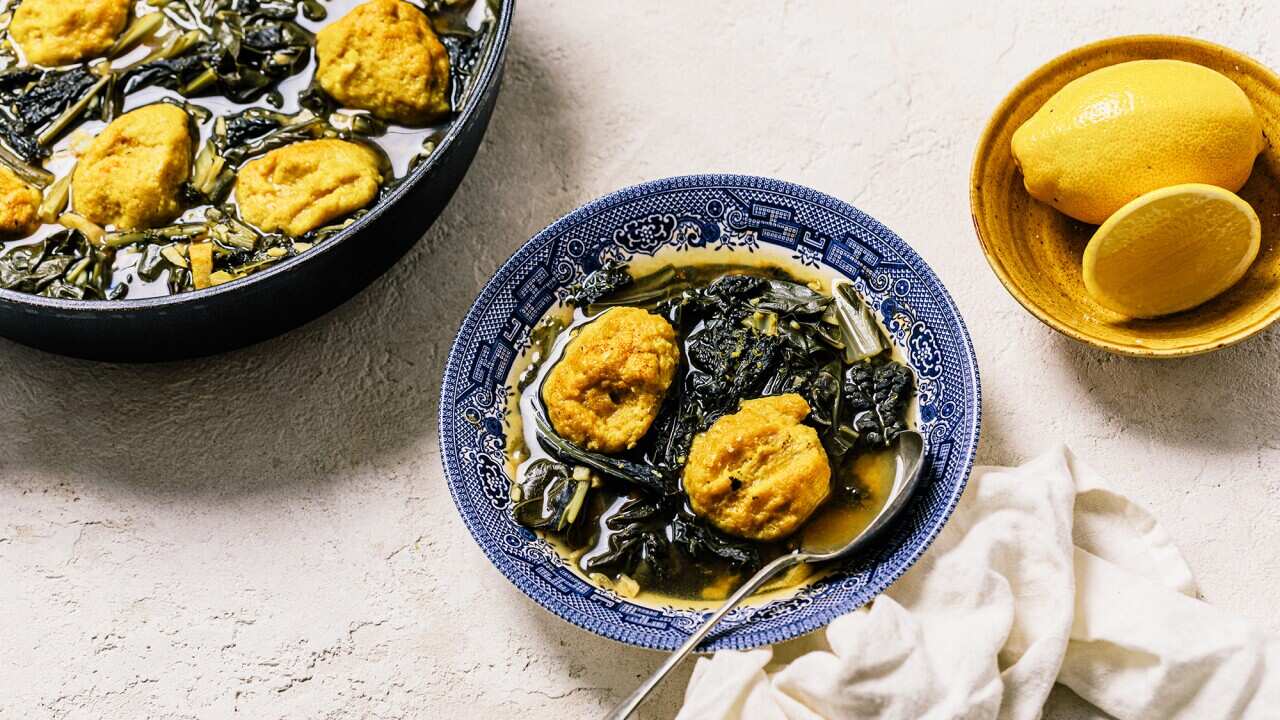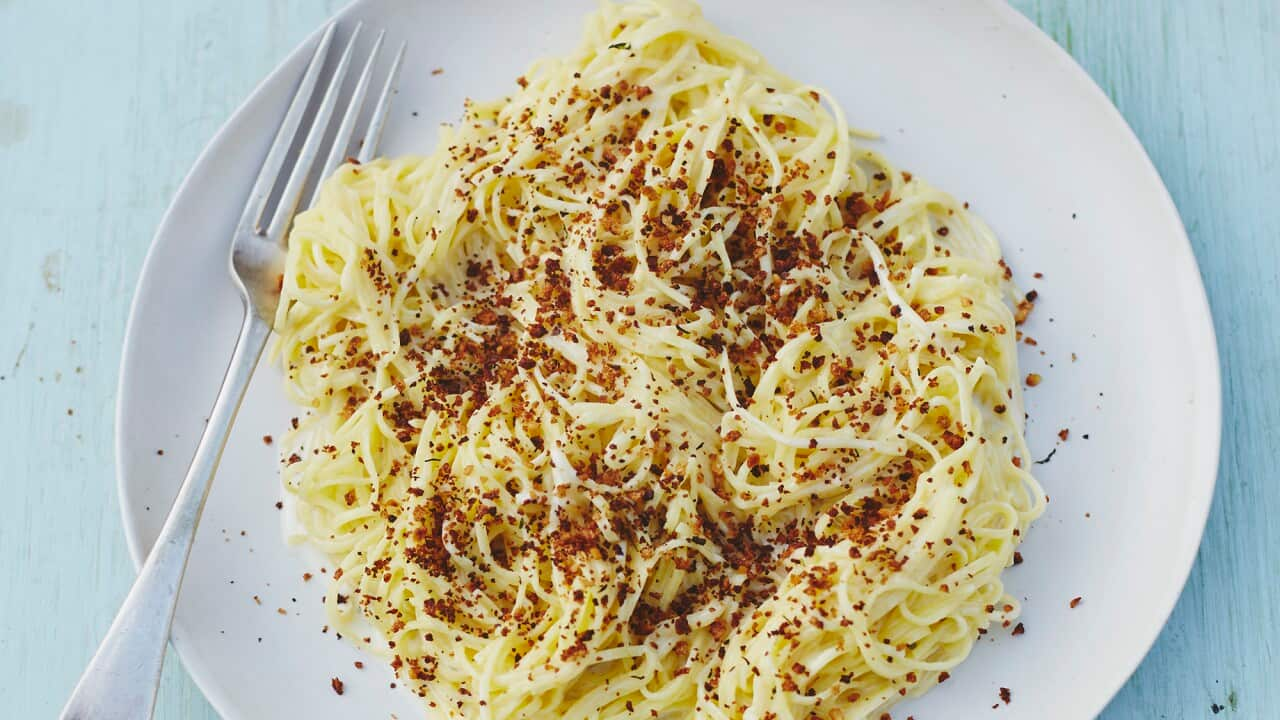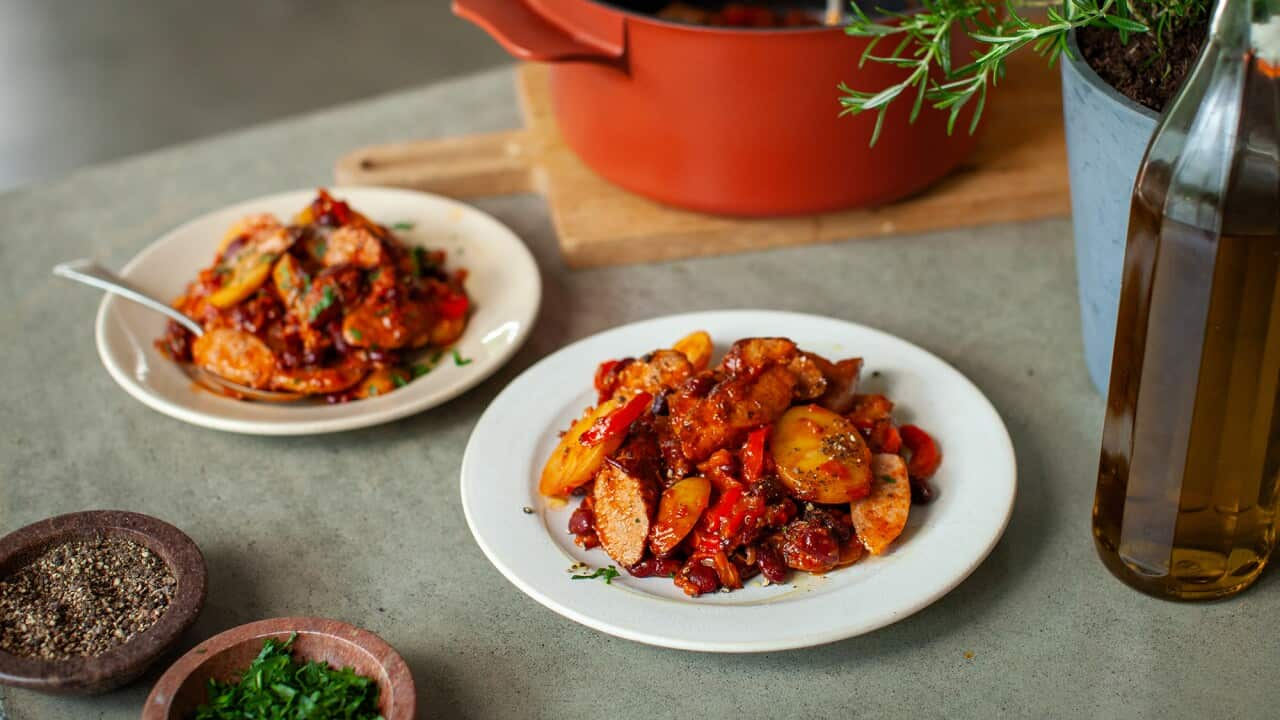makes
24-30
prep
1:30 hour
cook
35 minutes
difficulty
Mid
makes
24-30
serves
preparation
1:30
hour
cooking
35
minutes
difficulty
Mid
level
Ingredients
- 420 g peeled, deveined prawns
- 1 ¼ tsp fine sea salt
- ½ tsp caster sugar
- ⅛ tsp ground white pepper
- 2 tsp sesame oil
- 2 tsp canola oil
- 70 g pork fat, thinly sliced
- 100 g bamboo shoots
Dumpling skins
- 200 g (1 cup) wheat starch
- ½ tsp fine sea salt
- 250 ml (1 cup) boiling water
- 2 tbsp cornflour
- 1 tbsp lard
Refrigeration time: 2 hours
Resting time: 5 minutes.
Instructions
- Toss the prawns with ½ teaspoon of the salt, give them a quick rub, then rinse under cold running water and pat dry with paper towel. Store in the fridge for 2 hours. Place half the prawns into a mixing bowl. Finely chop the remaining prawns and add to the bowl along with the salt. Using a clean hand, mix in one direction using a circular motion until the mixture is elastic. Add the sugar, white pepper, sesame oil and canola oil and gently combine.
- Bring a small saucepan of water to the boil over high heat. Add the pork fat and bring back to the boil. Immediately drain and rinse the pork fat in cold running water. Pat dry with paper towel. Squeeze out any excess water, then finely dice the pork fat. Repeat this process to blanch the bamboo shoots.
- Combine the pork fat, bamboo shoots and prawn meat and set aside in the fridge.
- To make the dumpling skins, combine the wheat starch and salt in a mixing bowl. Pour in the boiling water and mix well with a pair of chopsticks or a spoon. Cover with plastic wrap and rest for 5 minutes. Add the cornflour and lard, then knead the dough until smooth and well combined.
- Divide the dough into four pieces. Work with one portion at a time and keep the rest covered with a clean damp cloth to stop the dough drying out. Roll one piece of dough into a long cylinder about 2 cm thick, then cut into six or seven 1.5 cm pieces.
- If you are feeling adventurous you could use a flat cleaver to flatten the dough, like a professional dim sum chef does. Otherwise a rolling pin will do. Just make sure you work quickly; if the dough starts to crack it means it is too dry, which will make it very difficult to fold and the finished texture will be rubbery.
- Roll each piece of dough into a 7 cm circle and lightly oil each one.
- Pick up a round of dough with your left hand, oil side down, and add a teaspoon of the filling. Pleat the dumpling by pushing the dumpling skin with the index finger of one hand and pressing to secure the pleat with the index finger of the other hand. You should be able to achieve 7–8 pleats. If this is too tricky, simply seal the dumpling however you wish – they may not look traditional but they'll still taste great.
- Repeat with the remaining dough and filling, covering the dumplings as you make them so they don't dry out.
- Pour water into a large saucepan to a depth of about 3 cm and bring to the boil. Lightly oil a large bamboo steamer to prevent sticking and line with baking paper or individual dim sum papers.
- Working in batches, add the dumplings to the steamer basket in a single layer, then cover and steam for 3–4 minutes or until soft and translucent. Remove from the heat and rest for 1 minute before opening the lid. Serve hot.
Hong Kong Local by ArChan Chan, published by Smith Street Books (RRP $39.99). Photography by Alana Dimou.
Cook's Notes
Oven temperatures are for conventional; if using fan-forced (convection), reduce the temperature by 20˚C. | We use Australian tablespoons and cups: 1 teaspoon equals 5 ml; 1 tablespoon equals 20 ml; 1 cup equals 250 ml. | All herbs are fresh (unless specified) and cups are lightly packed. | All vegetables are medium size and peeled, unless specified. | All eggs are 55-60 g, unless specified.









